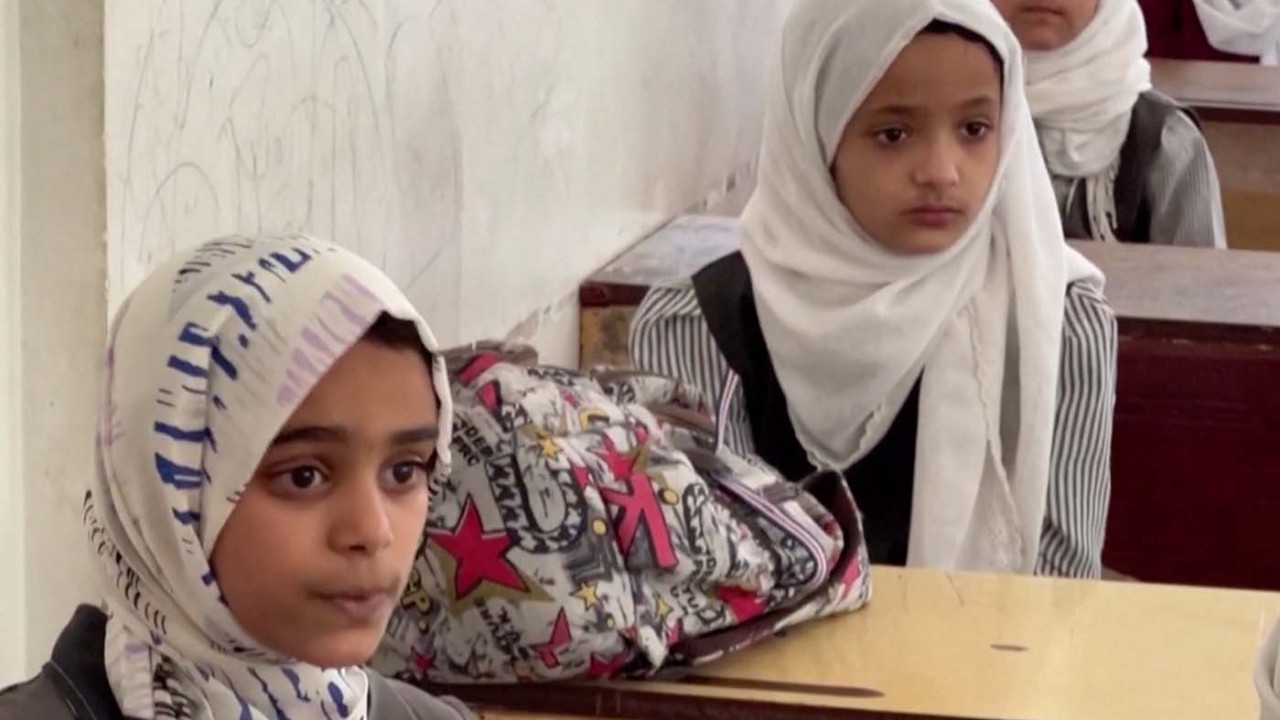
Iran-Saudi ties: China-brokered ‘win-win’ deal could bring Yemen war to a close, analysts say
- Tehran and Riyadh have agreed to restore diplomatic relations following the Beijing-led talks that experts dubbed as ‘a major development in the Middle Eastern diplomacy’
- Analysts say the easing of tensions between the rivals could also prompt Saudi and Iran to end hostilities in Yemen by agreeing to a ‘face-saving’ resolution
Although details of the deal reached during five days of talks in Beijing have not been made public, many analysts believe they include an understanding on bringing the eight-year war in Yemen to a negotiated close.
A Saudi-led Arab coalition intervened militarily in Yemen in 2015 to support the internationally recognised government against the Iran-backed Houthi rebels. Alongside an Iraqi militia, the Houthis have unleashed several drone and missile attacks on the kingdom and its energy installations.
The hostilities have largely stopped following a ceasefire implemented in 2022, but the long-running war has killed thousands and left Yemen on the brink of famine. The truce pact, which expired last October, is up for renewal.
Analysts described the warming of ties between the two Middle Eastern rivals as “a major development in regional diplomacy”.
Why avoiding sides in China-US rivalry ‘doesn’t hurt’ Middle East nations
For Iran, it represents a “successful effort of trying to push back against regional isolation without major changes to its policies”, which adversaries like Saudi Arabia had previously been demanding, Hussein Ibish, a senior resident scholar at the Arab Gulf States Institute in Washington, said.
Ibish noted that while details of the accord remain sketchy at the moment, “it’s very likely that Tehran had to commit to pressuring its allies in Yemen to be more forthcoming on ending the conflict”.
He added the restoration of diplomatic relations with Saudi is the “realisation of a long-standing Iranian goal”.
Waqar Rizvi, a Middle East policy specialist at Italy’s International Team for the Study of Security, said “domestically, this is a big win” for Iran, which has been buffeted by anti-regime protests and a tanking economy.
“The Iranians have always said unity between Shia and Sunni, and Muslim nations is its priority, regardless of the political differences that may exist,” Rizvi said.
He said Tehran’s sanction-crippled economy was also a major factor in patching up with Riyadh, adding the Islamic republic can no longer “afford to blindly support the Houthis and Syria’s Assad”.
Saudi has struggled to find an exit from the Yemen war after key ally the UAE withdrew its forces in 2019. Rizvi said the new-found unity would give the kingdom “a face-saving settlement in Yemen through which they can claim victory, as do the Iranians via the Houthis”.
Analysts expect the detente to have a positive effect on war-torn Syria, where Iran and Russia have backed President Bashar al-Assad’s forces battling rebels seeking his ouster.
Syria is also an important factor because the recent “warming up of Gulf Cooperation Council and Arab League countries to Assad signifies a shift away from Tehran”, Rizvi said.
The GCC comprises Bahrain, Kuwait, Oman, Qatar, Saudi Arabia and the United Arab Emirates.
“Iran must know that its good relations with Syria, and its perceived sacrifices to keep Assad in power have limited influence over the influence and wealth of the GCC and Arab League, especially as he seeks to re-enter the international community and rebuild his country,” he said.
Will ‘disaster diplomacy’ soften Turkey’s stance on Middle East rivals, China?
Giorgio Cafiero, CEO of Gulf State Analytics, a Washington-based risk consultancy, said the China-mediated deal should be viewed through the lens of a shift since 2020 in the Middle East toward “pragmatic foreign policy decision-making and diplomatic engagement between states that have had major problems in their relationships”
Cafiero said such diplomatic manoeuvres include Turkey, Syria and the UAE reconciling with their regional rivals.
“Rather than standing for certain causes and ideological agendas, Middle East governments are becoming more transactional and less ideational in their foreign policy conduct,” he said.
For Riyadh, rapprochement with Tehran is “a key part of a major diplomatic offensive on all fronts” as it aims to make peace with Israel, Washington-based analyst Ibish said.
“As Saudi Arabia resumes relations with Iran, it produces a potential framework for eventually, perhaps, normalising ties with Israel as well. This illustrates the breadth of the Saudi diplomatic offensive in all directions, he said.

Ibish added some Gulf Arab countries like Saudi and the UAE had adopted a two-pronged approach to Iran by joining the US-led efforts to tackle Tehran and diplomatically engaging with it at the same time.
This strategy has now resulted in this agreement, which is “obviously a significant step towards de-escalation of tensions”, he said.
“The Gulf Arab commitment to this dual policy reflects their belief that neither containment and deterrence nor diplomatic efforts at rapprochement alone are sufficient to manage relations with Iran,” Ibish said.
“Assuming Iran did offer something significant in return for this diplomatic reboot, it is very much a win-win scenario for the two countries.”


